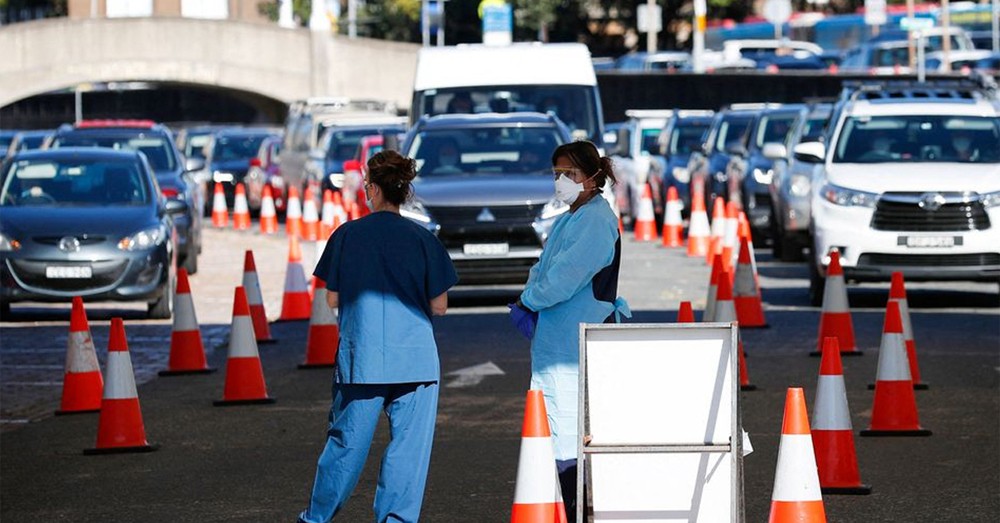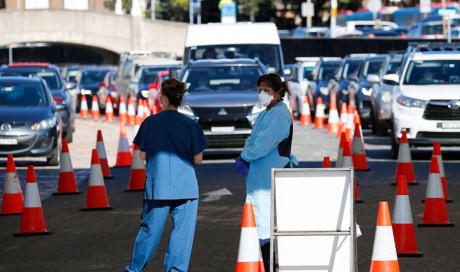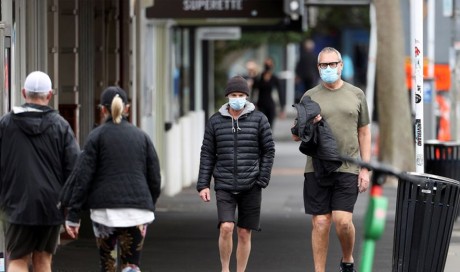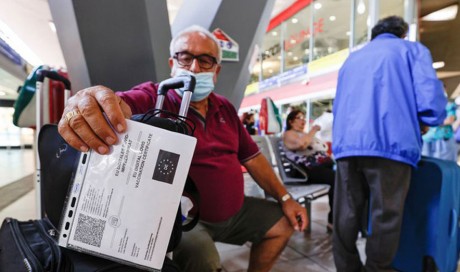Australia suffered its deadliest day of the pandemic on Tuesday as a fast-moving Omicron outbreak continued to push up hospitalisation rates to record levels, even as daily infections eased slightly.
Australia is dealing with its worst COVID-19 outbreak, fuelled by the Omicron variant of the coronavirus that has put more people in hospitals and intensive care than at any time during the pandemic.
A total of 77 deaths was recorded, exceeding the previous national high of 57 last Thursday, official data showed.
"Today, is a very difficult day for our state," New South Wales (NSW) Premier Dominic Perrottet said during a media briefing as the state reported 36 deaths, a new pandemic high.
Only four of those who died in NSW had received their booster shot, prompting the state's health officials to urge people to avoid delays and get their third dose soon. Thirty-three were double-dosed.
"There needs to be a sense of urgency in embracing the booster doses," NSW Chief Health Officer Kerry Chant said. "For Omicron, we know that the protection is lower and we need that next boosting to get that higher level of protection."
The surge in case numbers battered consumer confidence last week, an ANZ survey on Tuesday showed, triggering self-imposed lockdowns and stifling spending even as states looked to avoid lockdowns and keep businesses open.
Omicron also dented Prime Minister Scott Morrison's approval ratings, according to a widely watched poll on Tuesday, putting opposition Labor into a leading position months out from a federal election.
Amid rising hospitalisations, Victoria on Tuesday declared a "code brown" in hospitals, usually reserved for shorter-term emergencies, that would give hospitals the power to cancel non-urgent health services and cancel staff leave.
To help public hospitals cope, the federal government has activated a plan for private hospitals to provide up to 57,000 nurses and more than 100,000 staff to Omicron-affected areas around the country, Health Minister Greg Hunt said.
While authorities usually do not specify the coronavirus variant that leads to deaths, officials have said most patients in intensive care were infected with the Omicron strain, with unvaccinated young people forming a "significant number".
Queensland said none of Tuesday's record 16 deaths in the state had received booster shots. Of the 45 people who have died in the state due to COVID-19 since Dec. 13, only one had received their third dose.
"Please come forward and get your booster, we know that it makes a difference," state Health Minister Yvette D'Ath said.
About 73,000 new infections were reported on Tuesday, down from a high of 150,000 last Thursday. So far, Australia has reported about 1.6 million infections since the pandemic began, of which around 1.3 million were in the last two weeks. Total deaths stood at 2,776.
Source: Reuters / Reporting by Renju Jose; Additional reporting by Sonali Paul in Melbourne; editing by Richard Pullin
Share This Post














